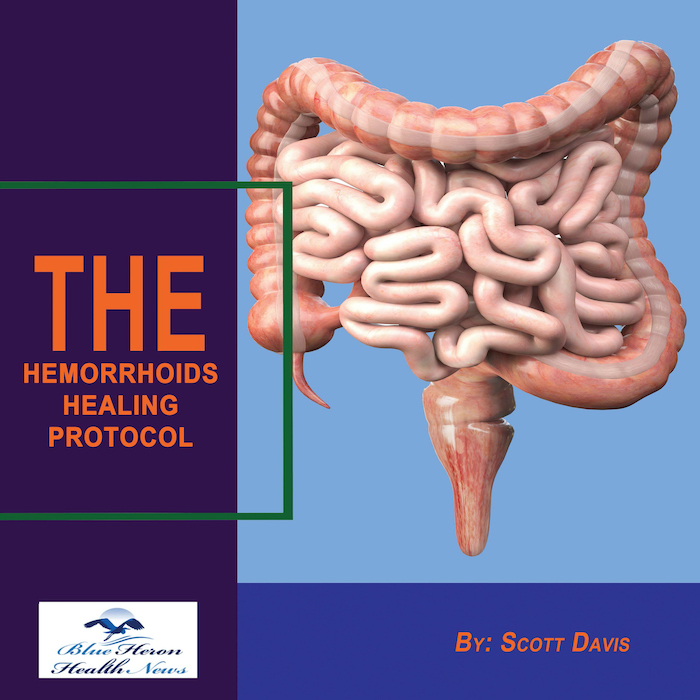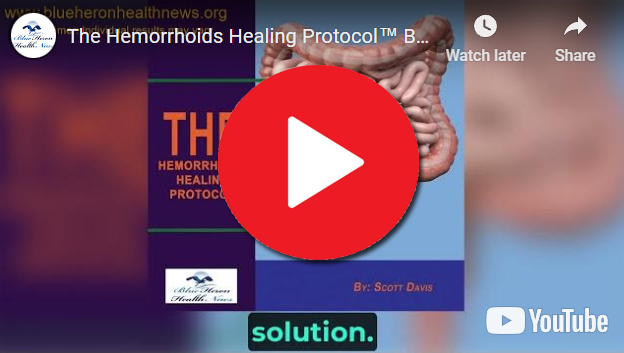
The Hemorrhoids Healing Protocol™ By Scott Davis Hemorrhoid healing protocol is a three-week online program that helps in treating and reducing hemorrhoids. It teaches gentle recipes and movements, natural and effective remedies that help in treating hemorrhoids.This program is not like the usual prescription medicines, it is a hell of a lot more than just those drugs. It focuses more on elevating the two main not so good habits that are connected to the Hemorrhoids. Overall the sole motive of this program is to remove the problem from its root instead of just treating the symptoms.
How can constipation contribute to hemorrhoids?
How Constipation Contributes to Hemorrhoids
Constipation is a common digestive issue that can significantly contribute to the development and exacerbation of hemorrhoids. Hemorrhoids are swollen and inflamed veins in the lower rectum and anus, and they can be caused or worsened by the straining and increased pressure associated with constipation. Here’s a detailed explanation of how constipation can lead to hemorrhoids:
1. Increased Straining During Bowel Movements
Mechanism:
- Hard Stools:
- Constipation often results in hard, dry stools that are difficult to pass. Straining to expel these stools increases pressure within the lower rectum.
- Vein Pressure:
- The increased intra-abdominal pressure from straining causes the veins in the rectum and anus to swell and become inflamed, leading to hemorrhoids.
Impact:
- Prolonged Straining:
- Repeated and prolonged straining during bowel movements can weaken the supportive tissues around the rectal veins, making them more susceptible to swelling and forming hemorrhoids.
2. Prolonged Sitting on the Toilet
Mechanism:
- Pressure Build-Up:
- Spending extended periods sitting on the toilet, often associated with constipation, can increase pressure on the rectal veins.
- Gravity’s Effect:
- The downward pressure exerted by gravity while sitting increases the blood pooling in the rectal veins, contributing to their swelling and potential formation of hemorrhoids.
Impact:
- Increased Risk:
- This sustained pressure can lead to the development of both internal and external hemorrhoids, particularly in individuals with chronic constipation.
3. Hard and Infrequent Stools
Mechanism:
- Hard Stools:
- Constipated individuals often pass hard stools that can cause abrasions and small tears in the anal canal as they are expelled.
- Venous Pressure:
- Hard stools can press against the walls of the rectum and anus, increasing venous pressure and leading to the formation of hemorrhoids.
Impact:
- Pain and Bleeding:
- Passing hard stools can exacerbate existing hemorrhoids, leading to increased pain, irritation, and bleeding during bowel movements.
4. Delayed Bowel Movements
Mechanism:
- Stool Accumulation:
- Delaying bowel movements can lead to the accumulation of stool in the rectum, which becomes harder and more difficult to pass over time.
- Increased Straining:
- The need to strain harder to pass these accumulated stools increases the risk of hemorrhoid formation.
Impact:
- Worsening Symptoms:
- Habitually delaying bowel movements can create a cycle of constipation and straining, perpetuating and worsening hemorrhoid symptoms.
5. Dehydration
Mechanism:
- Water Absorption:
- Inadequate fluid intake leads to dehydration, causing the colon to absorb more water from the stool, making it hard and dry.
- Difficult Passage:
- Hard stools are more difficult to pass, leading to increased straining and pressure on the rectal veins.
Impact:
- Increased Hemorrhoid Risk:
- Chronic dehydration and the resulting constipation can significantly increase the risk of developing hemorrhoids.
Prevention and Management Strategies
Dietary Adjustments:
- Increase Fiber Intake:
- Consuming a diet high in fiber (fruits, vegetables, whole grains, legumes) can help soften stools and promote regular bowel movements.
- Hydration:
- Drinking plenty of water (at least 8 glasses per day) helps keep stools soft and easier to pass, reducing the need for straining.
Regular Physical Activity:
- Exercise:
- Regular physical activity stimulates bowel function and helps prevent constipation, reducing the risk of hemorrhoids.
Healthy Bowel Habits:
- Respond to Urges:
- Do not delay bowel movements when the urge arises, as this can lead to stool accumulation and harder stools.
- Limit Time on the Toilet:
- Avoid spending prolonged periods sitting on the toilet to reduce pressure on the rectal veins.
Use of Stool Softeners and Laxatives:
- Stool Softeners:
- Over-the-counter stool softeners can help ease the passage of hard stools, reducing the need for straining.
- Laxatives:
- In cases of chronic constipation, laxatives may be recommended to help regulate bowel movements. However, they should be used under medical supervision to prevent dependency.
Proper Positioning:
- Squatting Position:
- Adopting a squatting position or using a footstool while sitting on the toilet can help align the rectum in a way that facilitates easier bowel movements and reduces straining.
Conclusion
Constipation significantly contributes to the development and exacerbation of hemorrhoids through mechanisms such as increased straining, prolonged sitting on the toilet, passing hard stools, and delayed bowel movements. Preventing and managing constipation with dietary adjustments, proper hydration, regular exercise, and healthy bowel habits can effectively reduce the risk of hemorrhoids. If constipation persists despite these measures, consulting a healthcare provider for further evaluation and treatment is recommended. By addressing constipation proactively, individuals can alleviate symptoms and prevent the formation or worsening of hemorrhoids.
The Hemorrhoids Healing Protocol™ By Scott Davis Hemorrhoid healing protocol is a three-week online program that helps in treating and reducing hemorrhoids. It teaches gentle recipes and movements, natural and effective remedies that help in treating hemorrhoids.This program is not like the usual prescription medicines, it is a hell of a lot more than just those drugs. It focuses more on elevating the two main not so good habits that are connected to the Hemorrhoids. Overall the sole motive of this program is to remove the problem from its root instead of just treating the symptoms.
